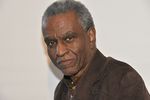CSC Cultural Studies Colloquium
←
→
Page content transcription
If your browser does not render page correctly, please read the page content below
An interdisciplinary
forum for the
CSC
presentation of new
research on the
important issues of Cultural
our time. Studies
Colloquium
The Campus
4400 University Drive
Enterprise Hall, MSN 5E4
Fairfax, VA 22033
Contact Us Cultural Studies
PhD Program
(703) 993.2851
cultural@gmu.edu
www.culturalstudies.gmu.eduFEB. 25, 2021, 4:30pm MAR. 18, 2021, 4:30pm
Jamie McCallum, Gavin Mueller,
Middlebury College University of Amsterdam
"Labor's Forgotten Fight: "Breaking Things at Work:
Renewing the Struggle for The Luddites Are Right
Shorter Hours Under About Why You Hate Your
Neoliberalism." Job."
https://gmu.zoom.us/j/92198595473
https://gmu.zoom.us/j/98178563191
The annual hours of labor in the US declined "Luddite" has become a pejorative term
for over a century, then began to reverse for anyone with an antipathy for
course, rising steadily since the 1970s. But MAR. 4, 2021, 4:30PM technology. But could the historical
this wasn’t an even process. Scheduling
norms became uneven and subject to
experiences of those machine-breakers
frequent change, and many workers today,
Gerald Horne, have relevance for current debates on the
even before the pandemic, seek more hours. University of Houston politics of automation, digital technology,
This talk, based on Worked Over: How "A Deeper History of an and the future of work? Drawing from his
Round-the-Clock Work is Killing the
American Dream, examines this historic
Insurrection: When Past latest book Breaking Things At Work,
shift and the possibilities for a labor Meets Present on 1/6/21." Gavin Mueller argues for Luddism as an
movement to gain a greater control over https://gmu.zoom.us/j/98556141922 approach for anticapitalist politics.
work time.
The remarks will trawl on his own
published work in order to illuminate
the hinge moment that was 1/6. The
class composition of the earliest
settler colonial node by London in the
1580s in North America will be
deployed to shed light on the class
dynamics of 1/6; similarly, the class
collaboration of that node will be tied
to that of 1/6--just as the class
struggle that has characterized the
journey of Africans on these shores
will be employed to explain their
relative absence among the
insurrectionists on 1/6.MAR. 25, 2021, 4:30pm APR. 1, 2021, 4:30pm
Rashmi Sadana, Ann Cvetkovich,
George Mason University Carleton University
"The Mobilities of the Delhi "Public Feelings in a Time
Metro." of Pandemic."
https://gmu.zoom.us/j/93781283399
https://gmu.zoom.us/j/93191846662
The arrival of the Delhi Metro – an ultra- This presentation draws on Cvetkovich’s
writings over the course of the pandemic in
modern urban rail system and South Asia’s
monthly meetings with her Austin-based Public
first major, multi-line metro – has become a Feelings group, whose participants are also in
touchstone for discussions of urban Chicago, Vancouver, and Ottawa, Canada.
development, gendered social mobility, and These short pieces constitute efforts to make
India’s increasingly aspirational culture. A sense of what is going on – or just
street-level ethnographic view of the city, document how it feels – with attention to topics
this research captures the contradictions of MAR. 25, 2021, 4:30pm such as covid silver linings (and other pandemic
a capital-intensive mega project that seeks keywords); Zoom-based art and performance;
to equalize how people of diverse social Hatim El-Hibri protest under conditions of social distancing;
classes and backgrounds get around. This George Mason University dialectics of hope and despair; black feminist
talk will focus on the different kinds of resources for survival and other forms of
mobilities of the Metro, including transport, "Another Future was Possible: The collective care and mutual aid; and the relation
gender, class and caste, and explore the Before/After Image and Beirut's between the HIV/AIDS pandemic and the covid-
relationship between the Metro as symbol, 19 pandemic. Through an exploration of the
Postwar Construction." current state of theories of affect and sensation,
material infrastructure, and new form of
sociality in the city. https://gmu.zoom.us/j/93191846662 she would also hope to prompt discussion of
how the pandemic feels in Canada and the US.
What role do images play in remaking cities
after conflict? And what can the history of
urban space tell us about infrastructure? This
talk examines the case of Beirut after its civil
war (1975-1990), and shows how the creation of
a new economic regime depended on media.
Imaging technologies played a key role in
urban design and in managing public
perception of the private real estate company
that was given control of the city center, but
also in securing new links to global finance. By
problematizing the work of images of
before/after, which contrast damaged
buildings with a future-perfect, it becomes
possible to understand how other, more
equitable urban futures are foreclosed.APR. 22, 2021, 4:30pm APR. 29, and
Robin Dembroff, co-speaker May 6, 2021, 4:30pm
Yale University Cultural Studies PhD
"What the Transracial/ Transgender
Analogy Misses."
Students
https://gmu.zoom.us/j/91495228452 George Mason University
Almost without exception, people take
the question, “Should someone be CULT 998
recognized as a woman?” to be settled
by first answering the question “Is that
Dissertation Proposals
https://gmu.zoom.us/j/94511086015
person really a woman?” They do the
same in the case of race, taking the
question, “Should someone be Cultural Studies doctoral
recognized as a Black?” to be settled by students will each give a
the answer to, “Is that person really 15-minute presentation to
Black?” We think this reasoning is
outline and discuss their
based on a mistake: what matters is not
what race and gender "really are", but proposed research on the
rather what race and gender concepts dissertations they are
ought to do. We argue that this about to embark upon.
paradigm shift reveals an important
Members of the Cultural
asymmetry between transgender and
transracial identification. Studies Program and
George Mason University
APR. 22, 2021, 4:30pm communities will
Dee Payton, co-speaker
participate in the Q&A
Rutgers University
with the candidates after
"What the Transracial/
their presentations.
Transgender Analogy Misses."
https://gmu.zoom.us/j/91495228452CSC is presented by the Cultural Studies PhD Program at George Mason
University, bringing scholars of diverse methodological, theoretical, and
topical expertise to share new and cutting-edge interdisciplinary research.
We are grateful to the African and African American Studies Program, the
Departments of History, Philosophy, and Sociology and Anthropology, the
Women and Gender Studies Program, and the Interdisciplinary
Programming Support Fund from the College of Humanities and Social
Sciences for funding that helped make this possible. For questions or more
information, please contact colloquium coordinator Denise Albanese,
dalbanes@gmu.edu, or contact the Cultural Studies office at
cultural@gmu.edu.You can also read
























































